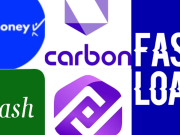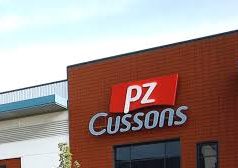The Association of Professional Women Engineers of Nigeria (APWEN) has raised concerns about the growing menace of plastic pollution, warning that it poses a serious threat to Nigeria’s tourism industry by damaging natural attractions and deterring visitors.
These observations were made during APWEN’s public lecture to commemorate World Environment Day , themed ‘Ending Plastic Pollution Using the Waste Museum Model: Action Plans and Recommended Solutions’ .
The keynote speaker, Agharese Onaghise , Executive Director of The Food and Beverage Recycling Alliance, highlighted how plastic pollution negatively impacts tourism—a significant contributor to Nigeria’s economy.
“Plastic pollution deters tourists and harms the tourism industry,” Onaghise said. “It damages fishing gear, contaminates catches, and imposes high costs for collecting, transporting, and disposing of plastic waste, burdening taxpayers and straining local budgets.”
She emphasized the government’s pivotal role in addressing the crisis by establishing robust policies and regulatory frameworks that promote sustainable practices and circularity.
“The government must create an enabling environment where industries and individuals are encouraged and incentivized to adopt eco-friendly alternatives,” she stated. “Through national sustainability initiatives, measurable targets, and aligned incentives, we can drive progress across sectors. Effective implementation, consistent monitoring, and public engagement are equally critical to fostering a culture of environmental responsibility.”
Related News
- Beneath the Black Gold: Oil-rich Niger Delta’s paradox of plenty and pain
- NiMet forecasts thunderstorms, rain for three days
- Left behind: Bayelsa albinos decry rejection, neglect, cancer risk
Meanwhile, the Chairman of the APWEN Lagos Chapter, Atinuke Owolabi , described plastic pollution as an alarming environmental challenge threatening ecosystems, marine life, food security, and public health.
“As engineers and change agents, we recognize that technical expertise must be matched with advocacy, innovation, and public engagement,” Owolabi said. “This lecture is more than a conversation; it is a commitment. The Waste Museum Model , developed through grassroots innovation, provides a unique blueprint for transforming plastic waste into educational and community tools. It emphasizes sustainability, creativity, and the circular economy—principles every community can adopt.”
Owolabi stressed the importance of shifting from a disposable culture to sustainable practices. She added that the initiative aims to empower citizens, particularly young women and girls, with the knowledge and responsibility to drive environmental change.
“APWEN Lagos assures all stakeholders—the government, industry, academia, and the public—of our readiness to collaborate in advancing innovative, practical, and inclusive solutions to end plastic pollution,” she said. “We remain committed to driving impactful conversations and engineering leadership that supports a greener, cleaner Lagos and Nigeria.”
Follow us on Instagram.
https://www.instagram.com/businessnewsng?igsh=ZXpweTdjOGF1ZXdu

























